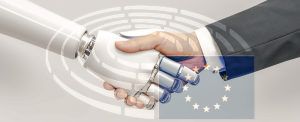Electronic invoicing in Europe: everything you need to know
Impact, obligations and benefits of electronic invoicing for businesses in Europe
Electronic invoicing is becoming mandatory in most European countries, but more cooperation between countries and harmonisation of rules and regulations at European level are needed.
![]()
In this article:
In Italy, the introduction of mandatory e-Invoicing for B2b has revolutionised the way companies manage their invoicing processes, but above all has provided a powerful tool in the fight against tax evasion. For this reason, more and more European countries are changing their legislation on B2B e-Invoicing, also in view of a likely introduction of the obligation by the EU.
But what is the situation with electronic invoicing in Europe? How does it work and what are its benefits and obligations for businesses in different countries? In this article we will explore everything you need to know about e-Invoicing in Europe, from its impact on businesses to the challenges related to its adoption. If you are a European company or thinking of expanding your business in Europe, read on to learn more about the e-Invoicing obligation in Europe and how it can affect your business.
European Legislation on Electronic Invoicing
There is currently no Europe-wide B2b e-Invoicing obligation, but the benefits of e-Invoicing to stop tax evasion are clear. Thus, although it is not yet clear what the technological infrastructure will be, the EU is apparently preparing to introduce a B2b e-invoicing obligation extended to all member countries by 2028, by intervening on the VAT directive on VAT and removing some clauses that complicate the introduction of the B2b e-invoicing obligation. Italy, for example, recently had to apply to the EU for a renewed derogation to introduce the obligation.
The European Reporting Systems
The first countries to follow Italy, with a gap of a few years, were Romania and Serbia, which introduced mandatory B2b e-invoicing from July 2022 (for now only for certain product categories at risk of evasion) and January 2023 respectively. France, Belgium and Slovakia are instead aiming for 2024.Each country, therefore, is ‘organising’ itself autonomously on how to notify B2B e-invoices, tending to create a ‘centralised’ infrastructure controlled by the government (on the model of the Italian Sistema di Interscambio) that takes care of the formal control of invoices and their sending to the customer.
For Europe, defining the processes by which each member state will have to notify cross-border transactions will not be an easy task: it will be necessary to create a model that is accessible to all but which takes into account the different systems already in place and the investments already made and planned by each member state.
Benefits of electronic invoicing
As mentioned above, there is no doubt that the introduction of e-Invoicing in Europe will be very helpful in curbing tax evasion within the EU. However, the regulation of B2b e-Invoicing in Europe will also facilitate European companies, who will be able – once and for all – to set up their B2b e-Invoicing processes on the basis of defined and shared standards, without having to adjust their invoicing methods from time to time depending on the country they trade with.
How to implement European e-Invoicing in your company
And in the meanwhile? Communicating with partners abroad is not always easy: there are often language and time zone barriers that make exchanging e-invoices in Europe not always straightforward, especially when regulatory changes come into play. In order to implement European e-invoicing in your company, Intesa and Pagero have partnered and created an international e-invoicing platform that provides a single interface to manage the activation of B2b e-invoicing in different countries as local regulations develop.
Conclusions
To conclude, electronic invoicing has become increasingly important in Europe and is rapidly replacing traditional paper invoicing methods, with the aim of reducing red tape, increasing efficiency and improving transparency in commercial transactions. Most European countries have already adopted e-invoicing or are preparing to do so, but a coordinated approach at European level, with increased cooperation between countries and harmonisation of rules and regulations, is needed to ensure its effectiveness.





